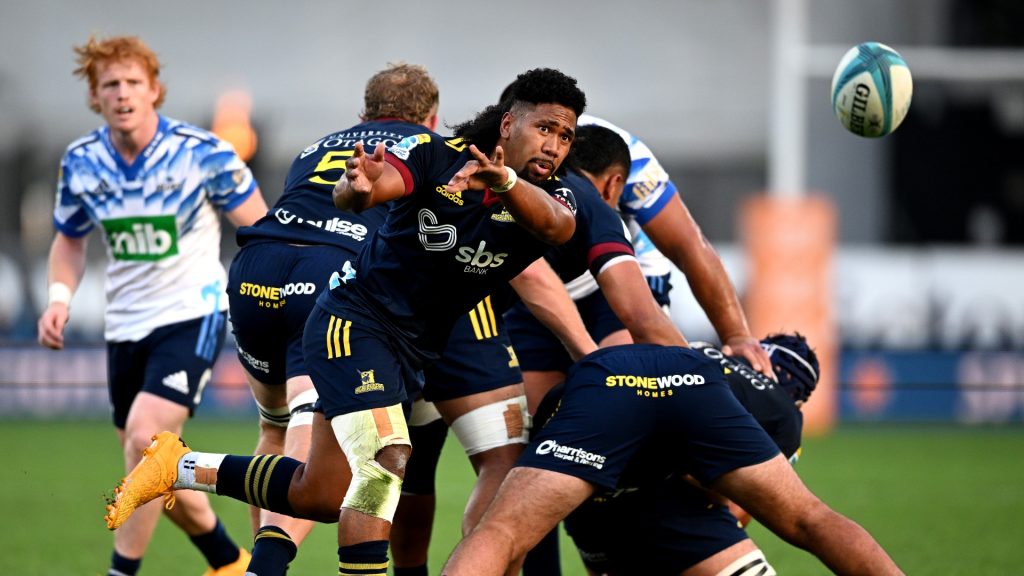Law variations make for fast-paced opening round
- 1414

Time restrictions on goal kicks, set pieces and rucks and a streamlined TMO process have made for a fast-paced start to Super Rugby Pacific.
Not the least was how the Blues used the assured fast conditions of Forsyth Barr Stadium in Dunedin to run in eight tries en route to a record-winning margin in games between themselves and the Highlanders.
Blues coach Leon MacDonald said before the game that while most players would not say they were 100 per cent match- fit at the start of the season, it would be the same for both sides, and the Blues hoped they could 'hang in a little longer' than the home side.
They achieved that goal, also evidenced by the Chiefs' impressive 31-10 win over the defending champion Crusaders side and the Hurricanes' 47-13 win over the Reds in Townsville.
Central to the changes is the restriction on halfbacks around scrums and the room that provides for No8s off the back of scrums. But while the emphasis was on watching out for the No8s, the halfbacks relished the freedom to provide valuable time that first five-eighths have yet to enjoy in recent seasons.
The Blues' combination of Finlay Christie and Beauden Barrett, the Chiefs' group of halfback Brad Weber, his replacement Cortez Ratima, and the two five-eighths Damian McKenzie and Josh Ioane, and the Hurricanes' Cam Roigard and Aidan Morgan all were key influencers in the outcomes of their games.
Another development has been the number of tap penalties being taken instead of scrums, which he said was also exciting.
MacDonald predicted before the weekend, "If we're starting to see more fatigued players because of the shortened breaks, we might see more broken play and less organized defences. It's hard to tell at the moment but we are expecting the game to be faster."
Again, that proved the case, and the tap penalties offered an exciting variation to the past five-metre scrums that have been the go-to choice.
Were the law variation outcomes a one-off at the start of the season, will weather influence future games, and will sides have the stamina to continue to play at that pace throughout the competition?
All are intriguing questions to be answered in the weeks ahead.

The key law variations in 2023 are:
- The referee will put a stopwatch on kickers who will have 90 seconds to kick a conversion from the time a try is awarded, and 60 seconds for penalties, from the time the referee signals a shot at goal.
- Match officials will expect lineouts and scrums to be formed within 30 seconds of the respective marks being set, and the ball to be used within 5 seconds of a ruck being formed.
- TMOs only ‘interrupt’ play to investigate serious, clear and obvious incidents of dangerous play missed by the Match Official team.
- Referees can utilise the TMO to make a Yellow Card decision, but any extended TMO video reviews will take place once the player has left the field, not before the Yellow Card is issued.
- The TMO will have 8 minutes to either uphold a 10-minute Yellow Card decision or upgrade it to a 20-minute Red Card, in which case the player will not return to the field, but can still be replaced.
- Referees will now also have the power to issue a full Red Card for deliberate foul play, in which case the player will not return to the field and cannot be replaced.





















